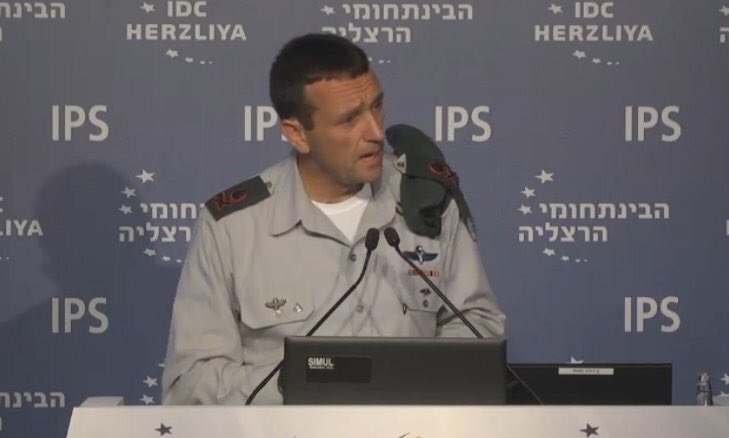Israel: The Case Against Attacking Iran
On Aug. 21, Israeli Channel 2 Television aired a recording of Ehud Barak, Israel’s former defense minister and former prime minister, saying that on three separate occasions, Israel had planned to attack Iran’s nuclear facilities but canceled the attacks. According to Barak, in 2010 Israel’s chief of staff at the time, Gabi Ashkenazi, refused to approve an attack plan. Israeli Cabinet members Moshe Yaalon and Yuval Steinitz backed out of another plan, and in 2012 an attack was canceled because it coincided with planned U.S.-Israeli military exercises and a visit from then-U.S. Defense Secretary Leon Panetta.
The fact that the interview was released at all is odd. Barak claimed to have believed that the tape would not be aired, and he supposedly tried unsuccessfully to stop the broadcast. It would seem that Barak didn’t have enough clout to pressure the censor to block it, which I suppose is possible.
Yaalon, like Ashkenazi, was once chief of staff of Israel Defense Forces but was also vice premier and Barak’s successor as defense minister. Steinitz had been finance minister and was vocal in his concerns about Iran. What Barak is saying, therefore, is that a chief of staff and a vice premier and former chief of staff blocked the planned attacks. As to the coinciding of a U.S.-Israeli exercise with a planned attack, that is quite puzzling, because such exercises are planned well in advance. Perhaps there was some weakness in Iranian defenses that opened and closed periodically, and that drove the timing of the attack. Or perhaps Barak was just confusing the issue.
A number of points are worth noting: Ehud Barak is not a man to speak casually about highly classified matters, certainly not while being recorded. Moreover, the idea that Barak was unable to persuade the military censor to block the airing of the recording is highly improbable. For some reason, Barak wanted to say this, and he wanted it broadcast.
Part of the reason might have been to explain why Israel, so concerned about Iran, didn’t take action against Iran’s nuclear facilities. Given the current debate in the U.S. Congress, that is a question that is undoubtedly being asked. The explanation Barak is giving seems to be that senior military and defense officials blocked the plans and that the Israelis didn’t want to upset the Americans by attacking during a joint exercise. The problem with this explanation is that it is well known that Israeli military and intelligence officials had argued against an Israeli strike and that the United States would have been upset whether or not joint exercises were occurring.
It would seem, intentionally or unintentionally, that Barak is calling Israeli attention to two facts. The first is that militarily taking out Iranian facilities would be difficult, and the second is that attempting to do so would affect relations with Israel’s indispensible ally, the United States. Military leaders’ opposition to the strikes had been rumored and hinted at in public statements by retired military and intelligence heads; Barak is confirming that those objections were the decisive reason Israel did not attack. The military was not sure it could succeed.
The Potential for Disastrous Failure
A military operation, like anything else in life, must be judged in two ways. First, what are the consequences of failure? Second, how likely is failure? Take, for example, the failure of the U.S. hostage rescue operation in 1980. Apart from the obvious costs, the failure gave the Iranian government reason to reduce its respect for U.S. power and thus potentially emboldened Iran to take more risks. Even more important, it enhanced the reputation of the Iranian government in the eyes of its people, both demonstrating that the United States threatened Iranian sovereignty and increasing the credibility of the government’s ability to defend Iran. Finally, it eroded confidence in U.S. political and military leaders among the U.S. public. In reducing the threat and the perception of threat, the failure of the operation gave the Iranian regime more room to maneuver.
For the Israelis, the price of failure in an attack on Iranian nuclear sites would have been substantial. One of Israel’s major strategic political assets is the public’s belief in its military competence. Forged during the 1967 war, the IDF’s public image has survived a number of stalemates and setbacks. A failure in Iran would damage that image even if, in reality, the military’s strength remained intact. Far more important, it would, as the failed U.S. operation did in 1980, enhance Iran’s position. Given the nature of the targets, any attack would likely require a special operations component along with airstrikes, and any casualties, downed pilots or commandos taken prisoner would create an impression of Israeli weakness contrasting with Iranian strength. That perception would be an immeasurable advantage for Iran in its efforts to accrue power in the region. Thus for Israel, the cost of failure would be extreme.
This must be measured against the possibility of success. In war, as in everything, the most obvious successes can evolve into failure. There were several potential points for failure in an attack on Iran. How confident were the Israelis that their intelligence on locations, fortifications and defenses were accurate? How confident were they that they could destroy the right targets? More important, perhaps, how certain could they be that the strikes had destroyed the targets? Finally, and most important, did they know what Iran’s recuperative capabilities were? How quickly could the Iranians restore their program? Frequently, an operationally successful assault does not deal with the strategic problem. The goal of an attack was to make Iran incapable of building a nuclear weapon; would destroying all known targets achieve that strategic goal?
One of the things to bear in mind is that the Iranians were as obsessed with Israeli and U.S. intelligence efforts as the Israelis and Americans were obsessed with the Iranian programs. Iran’s facilities were built to be protected from attack. The Iranians were also sophisticated in deception; knowing that they were being watched, they made efforts to confuse and mislead their observers. The Israelis could never be certain that they were not deceived by every supposedly reliable source, every satellite image and every intercepted phone call. Even if only one or two sources of information were actually misleading, which sources were they?
A failed Israeli assault on Iran would cause a major readjustment among other regional players in the way they perceive Israel and Iran. And for Israel, the perception of its military effectiveness is a strategic asset. There was a high risk of damaging that strategic asset in a failed operation, coupled with a strong chance that Israeli actions could unintentionally bolster Iran’s power in the region. The likelihood of success was thrown into question by Israel’s dependence on intelligence. In war, intelligence failure is a given. The issue is how great the failure will be — and there is no way to know until after the strike. Furthermore, operational success may not yield strategic success. Therefore, the ratio of potential risk versus reward argued against an attack.
Considering Iran’s Capabilities
There is another side to this equation: What exactly were the Iranians capable of? As I have argued before, enriched uranium is a necessary but insufficient component for a nuclear weapon. It is enough to create a device that can be detonated underground in controlled conditions. But the development of a weapon, as opposed to a device, requires extensive technology in miniaturization and ruggedization to ensure the weapon reaches its target. Those who fixated on progress in uranium enrichment failed to consider the other technologies necessary to create nuclear weaponry. Some, including myself, argued that the constant delays in completing a weapon were rooted both in the lack of critical technologies and in Iranian concerns about the consequence of failure.
Then there is the question of timing. A nuclear weapon would be most vulnerable at the moment it was completed and mounted on its delivery system. At that point, it would no longer be underground, and the Israelis would have an opportunity to strike when Iranians were in the process of marrying the weapon to the delivery device. Israel, and to an even greater extent the United States, has reconnaissance capabilities. The Iranians know that the final phase of weapon development is when they most risk detection and attack. The Israelis may have felt that, as risky as a future operation may seem, it was far less likely to fail than a premature attack.
Barak’s Motivations
Whether intentionally or not (and I suspect intentionally) Barak was calling attention, not to prior plans for an attack on Iran, but to the decision to abandon those plans. He pointed out that an Israeli chief of staff blocked one plan, a former chief of staff blocked a second plan and concern for U.S. sensibilities blocked a third. To put it in different terms, the Israelis considered and abandoned attacks on Iran on several occasions, when senior commanders or Cabinet members with significant military experience refused to approve the plan. Unmentioned was that neither the prime minister nor the Cabinet overruled them. Their judgment — and the judgment of many others — was that an attack shouldn’t be executed, at least not at that time.
Barak’s statement can be read as an argument for sanctions. If the generals have insufficient confidence in an attack, or if an attack can be permanently canceled because of an exercise with the Americans, then the only option is to increase sanctions. But Barak also knows that pain will not always bring capitulation. Sanctions might be politically satisfying to countries unable to achieve their ends through military action or covert means. As Barak undoubtedly knows, imposing further restrictions on Iran’s economy makes everyone feel something useful is being done. But sanctions, like military action, can produce unwelcome results. Measures far more painful than economic sanctions still failed to force capitulation in the United Kingdom or Germany, and did so in Japan only after atomic weapons were used. The bombing of North Vietnam did not cause capitulation. Sanctions on South Africa did work, but that was a deeply split nation with a majority in favor of the economic measures. Sanctions have not prompted Russia to change its policy. Imposing pain frequently unites a country and empowers the government. Moreover, unless sanctions rapidly lead to a collapse, they would not give Iran any motivation not to complete a nuclear weapon.
I don’t think Barak was making the case for sanctions. What he was saying is that every time the Israelis thought of military action against Iran, they decided not to do it. And he wasn’t really saying that the generals, ministers or the Americans blocked it. In actuality, he was saying that ultimately, Prime Minister Benjamin Netanyahu blocked it, because in the end, Netanyahu was in a position to force the issue if he wanted to. Barak was saying that Israel did not have a military option. He was not attacking Netanyahu for this decision; he was simply making it known.
It’s unlikely that Barak believes sanctions will compel Iran to abandon its nuclear program, any more the current agreement does. My guess is that for him, both are irrelevant. Either the Iranians do not have the ability or desire to build a bomb, or there will come a point when they can no longer hide the program — and that is the point when they will be most vulnerable to attack. It is at that moment, when the Iranians are seen arming a delivery system, that an Israeli or U.S. submarine will fire a missile and end the issue.
If Barak didn’t want a strike on Iran, if Netanyahu didn’t want a strike and if Barak has no confidence in agreements or sanctions, then Barak must have something in mind for dealing with an Iranian nuclear weapon — if it ever does appear. Barak is an old soldier who knows how to refrain from firing until he is most certain of success, even if the delay makes everyone else nervous. He is not a believer in diplomatic solutions, gestures to indirectly inflict pain or operations destined for failure. At any rate, he has revealed that Israel did not have an effective military option to hamper Iran’s nuclear program. And I find it impossible to believe he would rely on sanctions or diplomacy. Rather, he would wait to strike until Iran had committed to arming a delivery system, leaving itself wide open to attack — a nerve-racking solution, but one with the best chance of success.











